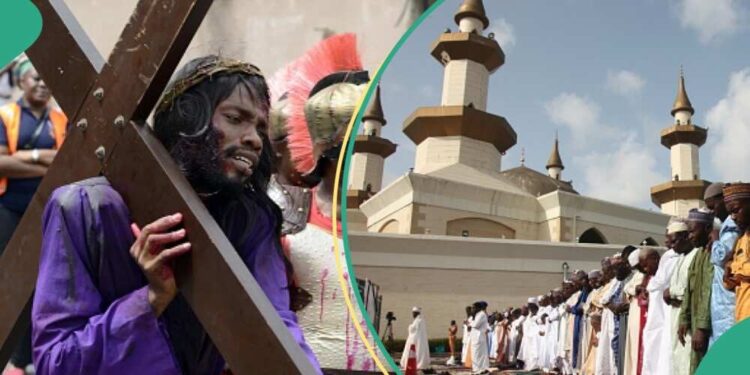Easter and Eid al-Fitr are two significant religious festivals celebrated by millions of people around the world. While they originate from different religious traditions—Easter from Christianity and Eid al-Fitr from Islam—they both hold profound meaning and serve as occasions for spiritual reflection, community, and renewal.
Easter:
Easter is the central festival in the Christian calendar, commemorating the resurrection of Jesus Christ from the dead, as described in the New Testament of the Bible. The date of Easter varies each year but is generally observed on the first Sunday following the full moon after the vernal equinox.
At its core, Easter symbolizes hope, redemption, and the victory of life over death. Christians believe that through his resurrection, Jesus conquered sin and offered the promise of eternal life to all who believe in him. The Easter story, with its themes of sacrifice, forgiveness, and renewal, resonates deeply with believers and serves as a reminder of God’s love and grace.
The celebrations of Easter often begin with the solemn period of Lent, 40 days of fasting, prayer, and reflection leading up to Easter Sunday. On Easter Sunday, churches around the world hold special services, including the sunrise service, where believers gather to commemorate the resurrection of Christ. Many traditions accompany Easter, such as the decoration of Easter eggs, symbolizing new life, and the Easter bunny, representing fertility and rebirth.
Beyond its religious significance, Easter holds cultural and familial importance for many people. Families come together to share meals, exchange gifts, and participate in festive activities. Easter serves as a time for reconciliation, renewal of faith, and the reaffirmation of core Christian beliefs.
Eid al-Fitr:
Eid al-Fitr, also known as the Festival of Breaking the Fast, marks the end of Ramadan, the Islamic holy month of fasting, prayer, and reflection. It begins with the sighting of the new moon, signalling the conclusion of Ramadan, and typically lasts for three days.
For Muslims, Eid al-Fitr is a joyous occasion that celebrates the spiritual growth and self-discipline achieved during Ramadan. It is a time of gratitude, charity, and communal solidarity. After a month of fasting from dawn until sunset, Muslims come together to feast, offer prayers of thanksgiving, and exchange greetings and gifts with family and friends.
Central to the celebration of Eid al-Fitr is the Zakat al-Fitr, a charitable donation given by Muslims to support those in need. This act of charity serves as a reminder of the importance of compassion and social justice in Islam, particularly during times of celebration and abundance.
Eid al-Fitr is also a time for Muslims to seek forgiveness, reconcile differences, and strengthen bonds with loved ones. Families gather for special prayers at mosques, followed by festive meals and gatherings. Homes are adorned with decorations, and children receive gifts and sweets as a symbol of joy and blessings.
In addition to its religious significance, Eid al-Fitr holds cultural importance, with unique customs and traditions observed by Muslims around the world. From the colourful clothing and traditional foods to the exchange of heartfelt greetings and hospitality, Eid al-Fitr showcases the diversity and richness of Islamic culture.
In conclusion, Easter and Eid al-Fitr are more than just religious festivals; they are moments of spiritual significance, communal celebration, and personal reflection. Whether commemorating the resurrection of Jesus Christ or the culmination of Ramadan, these festivals remind believers of the values of faith, compassion, and unity that transcend religious boundaries and bring people together in joy and gratitude.



Recent Comments